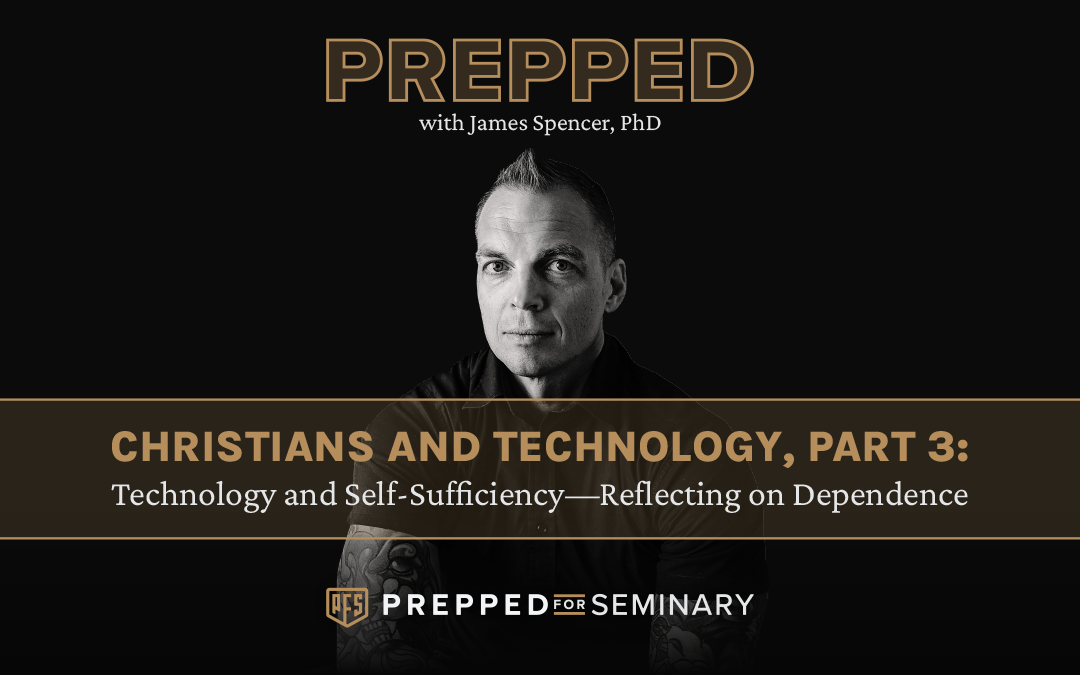We’ve been taught that strength looks like self-reliance. That completeness means not needing anyone—not even God. But as I reflect on Scripture and the subtle messages technology sends us every day, I’m more convinced than ever that dependence isn’t a flaw. It’s how we were designed.
The truth is that gratitude can reorient our hearts toward trust, peace, and joy in God.
Created for Limitations
From the very beginning, we were made with limits. Genesis 1 and 2 show Adam and Eve not as autonomous achievers but as image-bearers living within God’s design. Their role in the Garden wasn’t self-governance but of holy dependence—on God for provision, purpose, and boundaries.
Limitation is not a post-fall problem. It’s part of God’s good design. Just like grammar makes language possible, our limitations make flourishing possible. They create space for relationships, for purpose, and for faith.
Dependence isn’t restrictive. It’s formative. It’s not something to overcome—it’s something to embrace.
When Technology Distorts the Design
The problem isn’t technology itself. The problem is the story it tells. With every new advancement, we’re tempted to believe the same lie the serpent said in Genesis 3: You can be like God.
Technology promises independence, efficiency, and control. But at what cost?
🔹 We no longer need to ask for help—so we don’t.
🔹 We no longer feel our need for daily provision, so we forget the Giver.
🔹 We no longer tolerate slowness, struggle, or limits—so we rush past the things that could shape us into Christ’s image.
I believe this is how modern tech subtly moves us back toward Babel—a world where we can do so much that we no longer feel the need to seek God. That’s not progress. That’s spiritual erosion.
Self-Sufficiency Erodes Gratitude
Gratitude begins where entitlement ends. It starts when we realize that everything we have is a gift we didn’t earn.
But if I believe I’ve achieved everything on my own, what is there to thank God for? What’s left to celebrate?
Self-sufficiency kills gratitude. It makes us forget the daily bread, the grace upon grace, the help we’ve received from others. It leads us to work ourselves out of pain and discomfort before we ever consider being faithful within the situation we’re in.
Gratitude says, “I see what God has provided, and I’m choosing to trust Him with the rest.”
The Gift of Incompleteness
There’s a beautiful children’s story called The Missing Piece by Shel Silverstein. It’s about a circle searching for its missing piece, convinced that wholeness means being filled in. But when it finally finds that piece, it realizes something surprising: completeness isn’t all it hoped for. It can no longer sing. It can’t move like it used to. It’s lost something meaningful in the pursuit of “fullness.”
I think that’s us.
We think independence is the goal. But our “missing pieces”—our limits, gaps, and our need for others and God—aren’t liabilities. They’re holy invitations to communion.
As Paul writes in 2 Corinthians 12:9, “My grace is sufficient for you, for my power is made perfect in weakness.” The illusion of completeness isn’t Christian. Dependence is where grace shows up.
Practicing the Discipline of Gratitude
In a world of endless convenience, gratitude doesn’t come naturally. But it can be cultivated.
Start with daily practices:
- Take time to reflect on what you didn’t earn but still received.
- Acknowledge your limitations—and thank God for how they lead you to Him.
- Journal moments of provision, even small ones.
- Pray prayers of thankfulness before asking for anything else.
Gratitude slows us down. It reminds us that God is good, even when life isn’t easy. It re-centers us in the truth: We are not alone and were never meant to be.
Reflection Questions
- Where are you tempted to believe the lie of self-sufficiency?
- How has technology shaped your view of dependence on God or others?
- What limitations are you trying to “fix” rather than accept?
- When was the last time you truly thanked God for something beyond your control?
- What daily practice could help you cultivate gratitude this week?
